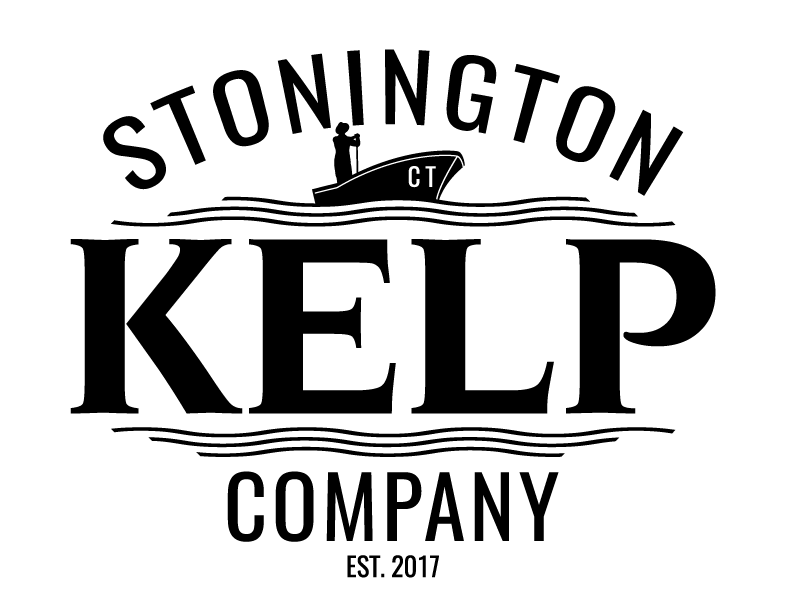What is Kelp? Sugar kelp is a native seaweed which has been used as a nutrient rich food source for thousands of years throughout the world.
Is kelp healthy? Kelp is high in many hard to find vitamins and minerals including vitamin K, Calcium, Iron, Iodine, and also contains macro nutrients and trace minerals such as Phosphorous, Iodine, Magnesium, and Selenium. Kelp contains Omega 3s and has antioxidants as well. Kelp consumption helps regulates thyroid function and metabolism, and it is a great source of fiber.
Is kelp farming good for the planet? Short answer, YES! Kelp is a restorative crop which means if helps to fix some of the problems our waterways face. Kelp absorbs carbon, nitrogen, and phosphorus from the water which helps fight warming ocean temps and acidification. Our 3 acre farm also creates a habitat for marine life. Kelp requires no freshwater, no fertilizer, no pesticides, and no land to farm - you need only the ocean and some line, and warm winter gear.
Why not just forage wild kelp? Kelp absorbs all its nutrition from the water and sun. This means kelp that grows in waterways contaminated with heavy metals or with a higher concentration of dangerous bacteria will be absorbed by the algae. Our kelp is farmed in aquaculture approved waters and tested for heavy metals and bacteria by the department of agriculture to ensure quality and safety.
How do I prepare kelp? Kelp can be dried, sautéed, roasted, boiled or eaten raw. It is commonly used in soups, as a wrap for grains or fish, as a spice adding a savory and nutritional boost to food, or as a nutrient boost for smoothies. There are loads of recipes on our site.
How do I store kelp? Dried kelp can be stored as a spice and used over several months. Blanched and frozen kelp can keep frozen for 6 months - 1 year. raw kelp can be stored in a refrigerator for 4-7 days.
How did this farm start? Stonington Kelp Co is a small operation run by Suzie and Jay with a goal to try and do some good for the planet and the local community in a responsible way. By working to develop a market for kelp as a food-source, they hope to create a new economy that can have a positive impact on waterways and deliver a healthy and sustainable food to their neighbors.
I have too much kelp, what do I do? If your eyes were bigger than your stomach and you do not want to sundry the kelp to use as a spice, incorporate your leftovers into your garden. Kelp is an AMAZING fertilizer. It can bring a much-needed nutritional boost to your garden and is safe for the waterways. You can apply it directly or mix it into a compost. You can also soak it in a gallon of water to make a kelp “tea” for your garden.
More Questions? Try these Resources - GUIDE TO SEAWEED INDUSTRY - SEAWEEDS OF LONG ISLAND SOUND - GREENWAVE FARMER TOOLKIT - SEAWEED RECIPES

